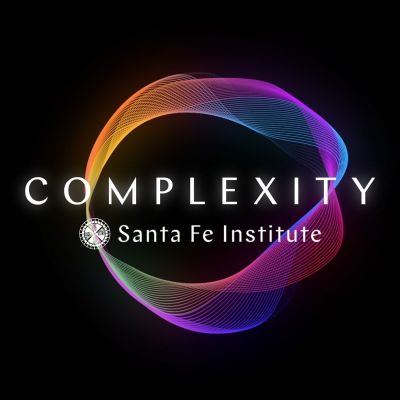Are there universal laws of life and can we find them? Is there a physics of society, of ecology, of evolution? Join us for six episodes of thought-provoking insights on the physics of life and its profound implications on our understanding of the universe. In this season of the Santa Fe Institute’s Complexity podcast’s relaunch, we talk to researchers who have been exploring these questions and more through the lens of complexity science. Subscribe now and be part of the exploration!
https://complexity.simplecast.com
Gesamtlänge aller Episoden: 4 days 12 hours 27 minutes
episode 13: W. Brian Arthur (Part 1) on The History of Complexity Economics
From its beginnings as a discipline nearly 150 years ago, economics rested on assumptions that don’t hold up when studied in the present day. The notion that our economic systems are in equilibrium, that they’re made of actors making simple rational and self-interested decisions with perfect knowledge of society— these ideas prove about as useful in the Information Age as Newton’s laws of motion are to quantum physicists...
episode 12: Matthew Jackson on Social & Economic Networks
It may be a cliché, but it’s a timeless truth regardless: who you know matters. The connectedness of actors in a network tells us not just who wields the power in societies and markets, but also how new information spreads through a community and how resilient economic systems are to major shocks...
episode 11: Ray Monk on The Lives of Extraordinary Individuals: Wittgenstein, Russell, Oppenheimer
In this show’s first episode, David Krakauer explained how art and science live along an axis of explanatory depth: science strives to find the simplest adequate abstractions to explain the world we observe, where art’s devotion is to the incompressible — the one-offs that resist abstraction and attempts to write a unifying framework...
episode 10: Melanie Moses on Metabolic Scaling in Biology & Computation
What is the difference between 100 kilograms of human being and 100 kilograms of algae? One answer to this question is the veins and arteries that carry nutrients throughout the human body, allowing for the intricate coordination needed in a complex organism...
episode 9: Mirta Galesic on Social Learning & Decision-making
We live in a world so complicated and immense it challenges our comparably simple minds to even know which information we should use to make decisions. The human brain seems tuned to follow simple rules, and those rules change depending on the people we can turn to for support: when we decide to follow the majority or place our trust in experts, for example, depends on the networks in which we’re embedded...
episode 8: Olivia Judson on Major Energy Transitions in Evolutionary History
It’s easy to take modern Earth for granted — our breathable atmosphere, the delicately balanced ecosystems we depend on — but this world is nothing like the planet on which life first found its foothold. In fact it may be more appropriate to think of life in terms of verbs than nouns, of processes instead of finished products...
episode 7: Rajiv Sethi on Stereotypes, Crime, and The Pursuit of Justice
Whether or not you think you hold them, stereotypes shape the lives of everyone on Earth. As human beings, we lack the ability to judge each situation as unique and different…and how we group novel experiences by our past conditioning, as helpful as it often is, creates extraordinary complications in society...
episode 6: Jennifer Dunne on Reconstructing Ancient Food Webs
Looking back through time, the fossil record shows a remarkable diversity of forms, creatures unfamiliar to today’s Earth, suggesting ecosystems alien enough to challenge any sense of continuity. But reconstructed trophic networks — maps of who’s eating whom — reveal a hidden order that has been conserved since the first complex animals of half a billion years ago...
episode 5: Jennifer Dunne on Food Webs & ArchaeoEcology
For as long as humans have erected walls around our cities, we’ve considered culture separate from the encircling wilderness. This difference came to be expressed in our “man vs. nature” narratives, beliefs in our dominion over the nonhuman world, and lately even the assertion that the Earth would be better off without us. Ecology research has strangely almost never included humans in the picture...
episode 4: Luis Bettencourt on The Science of Cities
If you’re a human in this century, the odds are overwhelming that you are a city-dweller. These hubs of human cultural activity exert a powerful allure – and most people understand that this appeal is due to some deep link between the density, pace, wealth, and opportunity of cities. But what is a city, really? And why have the vast majority of human beings migrated to these intense and often difficult locations? Cities breed not just ideas but also crime, disease, and inequality...
